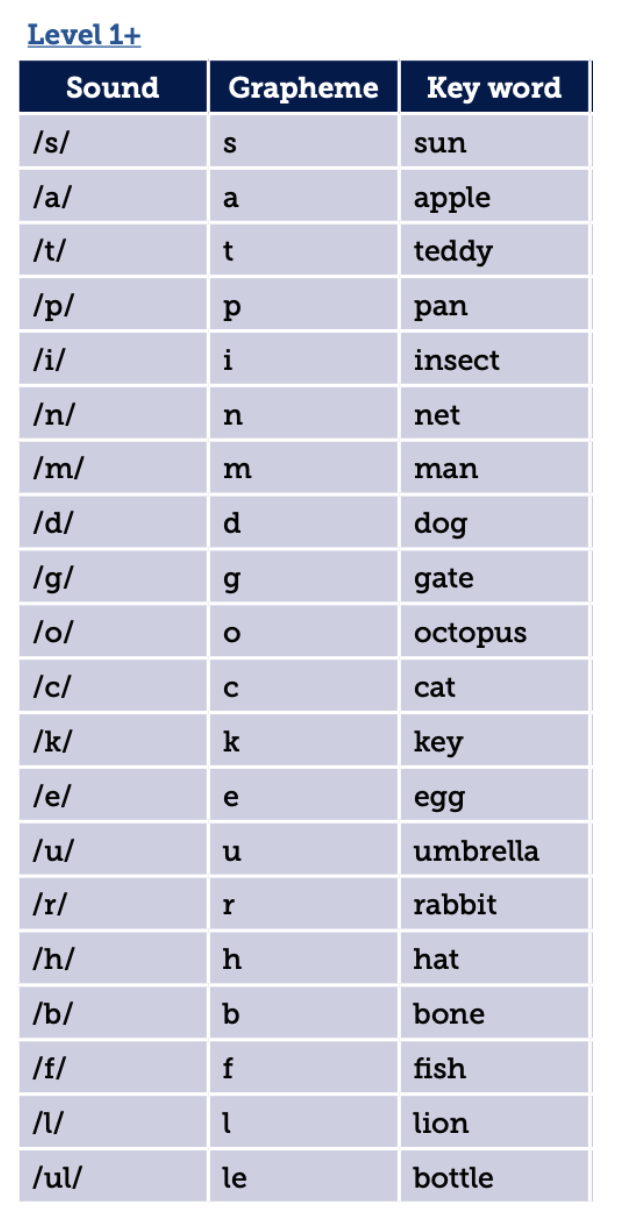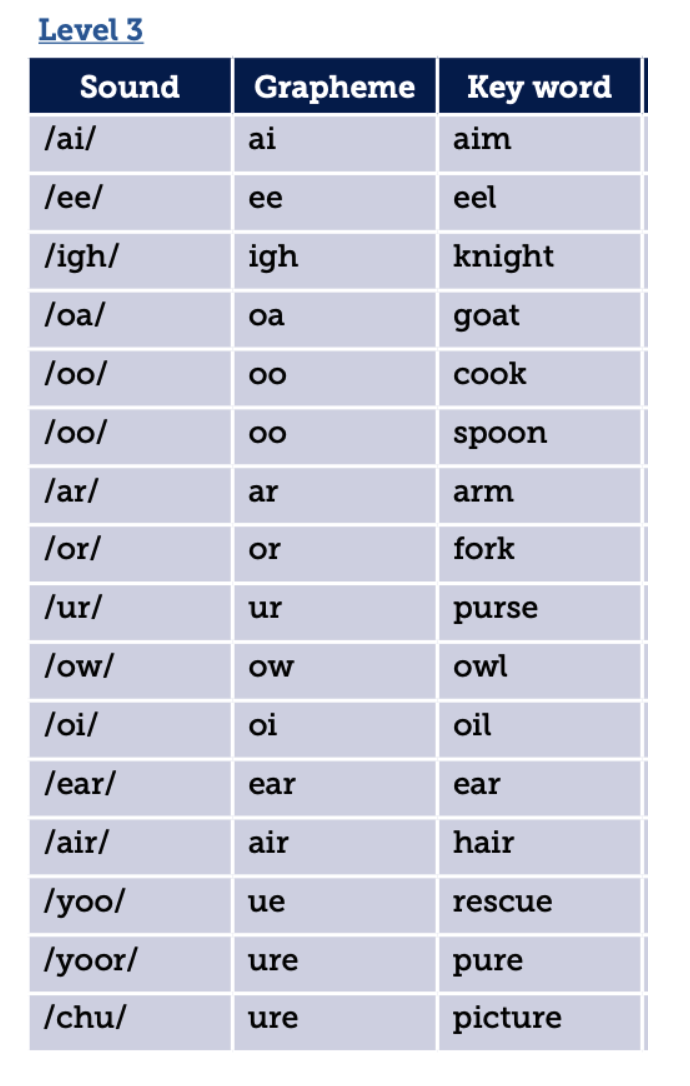

Phonics
At Charles Dickens, we teach Phonics using a scheme called ‘Floppy’s Phonics’. This is fully accredited by the Department for Education and is a systematic synthetic phonics program, which means that children are taught to recognise letters (graphemes) and their corresponding sounds (phonemes) and are taught to decode, or break down words into the smallest units of sound. Using this scheme, the children’s phonic knowledge is layered as they progress up the school. You can learn how to teach your child some phonics sounds by watching these films made by our phonics lead, Ms Livett.
Level 1+ Floppy’s Phonics Guide
Level 2 Floppy’s Phonics Guide
Level 3 Floppy’s Phonics Guide
Nursery (age 2-4)
Children are taught key ‘pre-phonics’ skills through reading high quality rhyming books and playing a variety of fun listening games. Into today’s noisy world, children can find it very challenging to zone in on specific individual sounds, so in our Nursery, we give the children plenty of opportunities to identify a variety of loud and soft sounds, from animal noises to musical instruments! Children play games such as I spy or Simon Says to begin identifying the individual sounds in words. They start to become familiar with Floppy’s Phonics Online by exploring the interactive lessons through their wordless stories such as At the Farm, At the Park and At the Match. Children also sing many different songs linked to these stories. Those that are ready are introduced to Level 1+ sounds and their corresponding actions and may also begin reading simple words and sentences.
Reception (age 4-5)
In Reception children are provided with a Floppy’s Story Book (changed weekly) and a Floppy’s Phonics Book (changed fortnightly). The Floppy’s Phonics book contains the sounds the children are learning that fortnight and is an excellent opportunity to practice what they have learnt that day in school.
The Floppy’s Phonics scheme splits the sounds into 5 different levels. In Reception children will learn the following sounds (please click on the level to open the corresponding sound mats):
Level 1+ (phonics book 1-6): s, a, t, p, i, n, m, d, g, o, c, k, ck, e, u, r, h, b, f, -ff, l, -ll, -le, ss
Level 2 (phonics book 7-12): j, v, w, -x, y, z, -zz, qu, ch, sh, -ng, th, -dge, -ve, wh, -cks, -tch, -nk
Level 3 (phonics book 13-18) ai, ee, igh, oa, oo, oo, ar, or, ur, ow, oi, ear, air, -er, er, -ue, -ue, -ure, -ture
Note: When you see a – next to a sound, it indicates that it typically appears at the end of a word.
Children will also learn a selection of helpful words. These are known as ‘helpful’ words because children’s ability to recognise and remember them significantly improves their reading fluency, as they appear frequently in the Floppy’s Phonics story books.
Level 1+: the, to, no, go, I, into, little, of, ten
Level 2: he, she, we, me, was, you, they, all, are, her, off, when, six, seven, have
Level 3: be, are, my, sister, too, why, sky, again, look



Year 1 (age 5-6)
In Year 1, children continue to receive a story book (changed twice weekly) and a phonics book changed fortnightly) and are taught the following sounds:
Level 4 (book 19-24) : -ay, oy, ea, -ie, ow, ew, -ew, ou, ir, aw, eer, -are, -ce, -ea, o, -ed
Level 5 (book 25-36): a-e, e-e. i-e, o-e, u-e, u-e
These are alternative spellings of sounds that they have already learnt. For example, -ay, as in stay rather than ai as in rain.
Children are also taught the following helpful words:
Level 4: said, like, so, do, some, come, were, there, out, what, mother, brother, one, three, looked
Level 5: their, people, Mr, Mrs called, asked, could, oh no, should, would, because, here, our, father, who, where, which, four, five, eight, nine, try, cry, ball, small, call, asked, liked, two, goes, does, shoes
Phonics Screening
During the summer term in Year 1, children nationwide are tested on their phonic knowledge. This test helps us to identify children who have gaps in their phonic knowledge and may need support in Year 2 to develop reading and writing skills. The test is very low-key and the children are not aware that they are being tested. Parents are informed as to whether their child has achieved the national expectation within the child’s end-of-year report.
Additional individual and group tuition in phonics will be given to those children in year 1 and Year 2 who find reading difficult. Year 2 children will be tested again in the summer term



